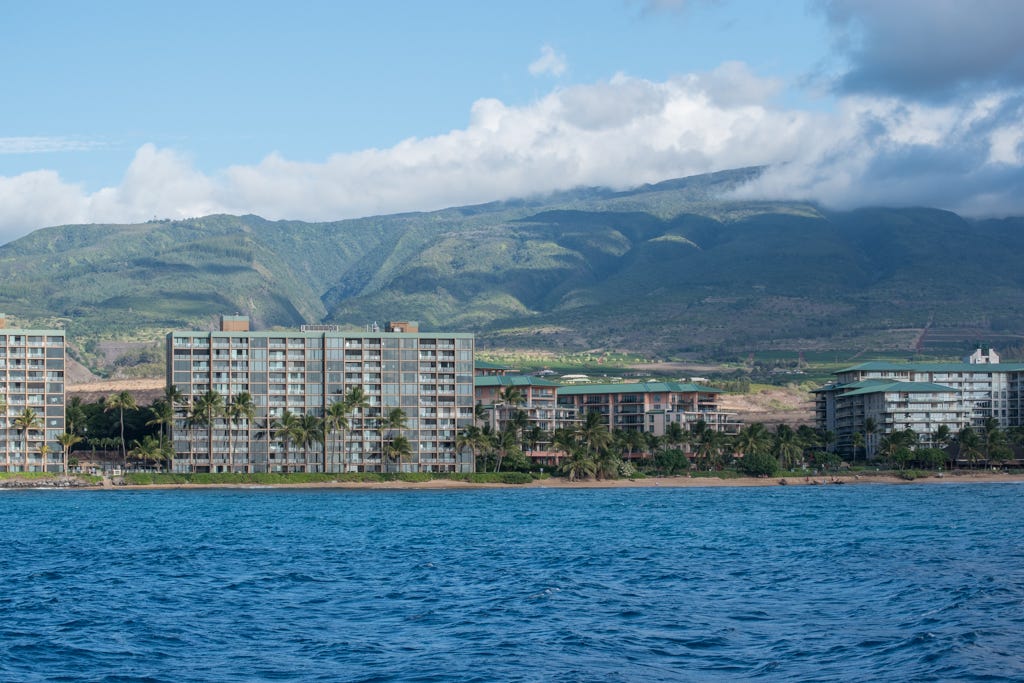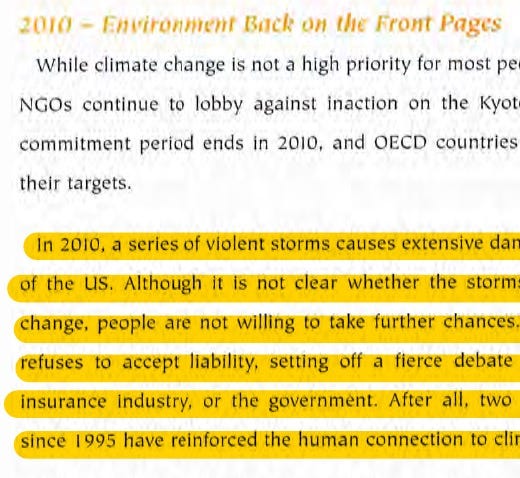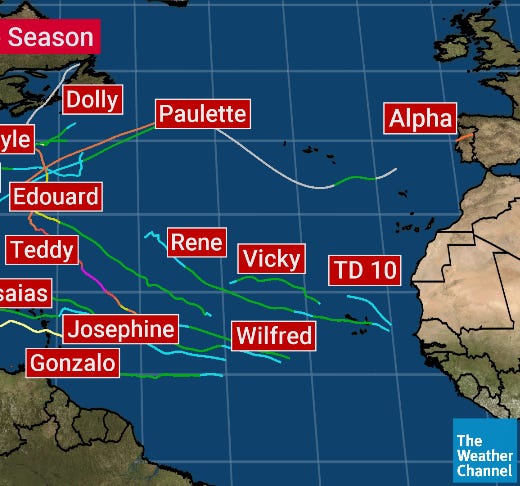Maui makes waves and sues 20 oil and gas companies for climate damages
That’s now two dozen municipalities that have taken fossil fuel giants to court.
If you’re new here and haven’t yet signed up for free weekly updates on the fight to hold Big Oil accountable for the costs of climate change, you can sign up below. Welcome to EXXONKNEWS.

Good morning and happy Friday. I can only hope your week was better than Exxon’s last:
We don’t really feel that bad, though. The multi-billion dollar oil giant and its peers have been knowingly profiting off of global climate catastrophe and its localized environmental, economic and societal ravages for decades — and lying about it to boot.
Thankfully, you and I are not the only ones who have had more than enough of it: the County of Maui just took Exxon, Shell, BP, Chevron, and more than a dozen of the other biggest and baddest oil and gas majors to court to hold them accountable for the damage. After Honolulu, Maui is the second community in Hawai’i — and the 24th in the country — to file a climate accountability lawsuit against the fossil fuel industry.
Talk about riding that wave. So you don’t get swept away in the details, we’ve got the highlights for you here. 🌊
Maui’s lawsuit is the latest to expose Big Oil’s climate con.
Maui County, which covers four islands, is charging major oil companies with not only failing to take action when they learned their products would cause grave harm to the climate — but actively launching a “decades-long campaign of deception designed to maximize continued dependence on their products and undermine national and international efforts to rein in greenhouse gas emissions.”
Big Oil’s multimedia effort to discredit the findings of their own scientific research was aimed to “persistently create doubt in the minds of customers, consumers, regulators, the media, journalists, teachers, and the public about the reality and consequences of the impacts of their fossil fuel pollution,” according to the complaint. And it worked: the industry’s deception allowed it to derail climate action and increase the use of its dangerous products while shifting the social, environmental, and economic costs onto the public.
The lawsuit points out that these companies are still lying today by promoting their so-called commitments to carbon neutrality while making plans to expand their fossil fuel operations. The case cites a recent analysis showing that between 2010 and 2018, BP put only 2.3% of its total capital spending towards low carbon energy sources, while Shell spent 1.2%, and Chevron and Exxon spent just 0.2% each.
Oil giants have of course refused to take responsibility for any of the costs of climate disasters they caused. Want to guess who’s paying those bills in the meantime?
Maui residents are shelling out billions to deal with the climate chaos these companies set into action.
Maui’s case describes the growing climate threats to its four islands, surrounded by nearly 300 miles of coastline: 2019 was its warmest year on record and known as the “year of fire,” where a now year-round fire season led to 26,000 scorched acres (six times more than in 2018). More than $3.2 billion in assets, including the county’s harbors, airports and major roadways could be destroyed by chronic flooding and sea-level rise by the end of the century.
Adaptation will mean upgrading and rebuilding the county’s critical infrastructure, safeguarding vital resources and ecosystems, and protecting public health and safety from these impacts. During a global pandemic and economic depression stripping local budgets to the bone, that’s not something any local government can handle on its own — nor should they have to.
“Big Oil companies sold products that they knew would harm the environment, with devastating effects on public resources and infrastructure, leaving local governments and taxpayers to bear the costs,” said Maui Mayor Michael Victorino in a press release accompanying the lawsuit. “With all the demands our citizens face in these times of economic, social and healthcare emergencies, it’s unjust to let the oil companies scoop up profits and avoid paying for any of the damage they’ve inflicted.”
Native Hawaiʻians and communities of color are at the forefront of the climate disasters Big Oil unleashed.
Maui’s lawsuit, filed on Indigenous Peoples’ Day, lays out the ways Native and low-income communities are forced to inherit Big Oil’s mess — starting with the stark income and housing inequality that makes adapting and recovering from climate disasters that much more difficult.
As the lawsuit explains, many of Maui’s Native Hawaiʻian communities experience twice the rate of statewide unemployment and make far below the state’s average income, and lack access to transportation and resources necessary during climate emergencies. Low-income and Native residents are most exposed to polluted air and the negative health outcomes of extreme weather — yet face the greatest barriers to healthcare in the county. Low-wage workers, many of whom come from Native Hawaiʻian communities, are at the crux of job losses when climate change hits industries like the tourism sector — and Native Hawaiʻian cultural and historical sites and sources of livelihood lie at the county’s already-compromised shoreline.
Maui’s filing is another sign of the growing power of this movement.
Last week, the Supreme Court decided to weigh in on a procedural issue in Baltimore’s climate liability lawsuit — if you’re a nerd, you can read about what that means here. One of the questions floating around the ether was whether SCOTUS’s pending review would stop new communities from taking on Big Oil.
The answer is a clear no. Maui’s full speed ahead approach is proof that despite the fossil fuel industry’s efforts to delay and obstruct these cases, climate accountability and justice are a priority for communities across the nation. And if there’s a will, there’s most certainly a wave (sorry!).
ICYMI News Roundup
Until next week!



